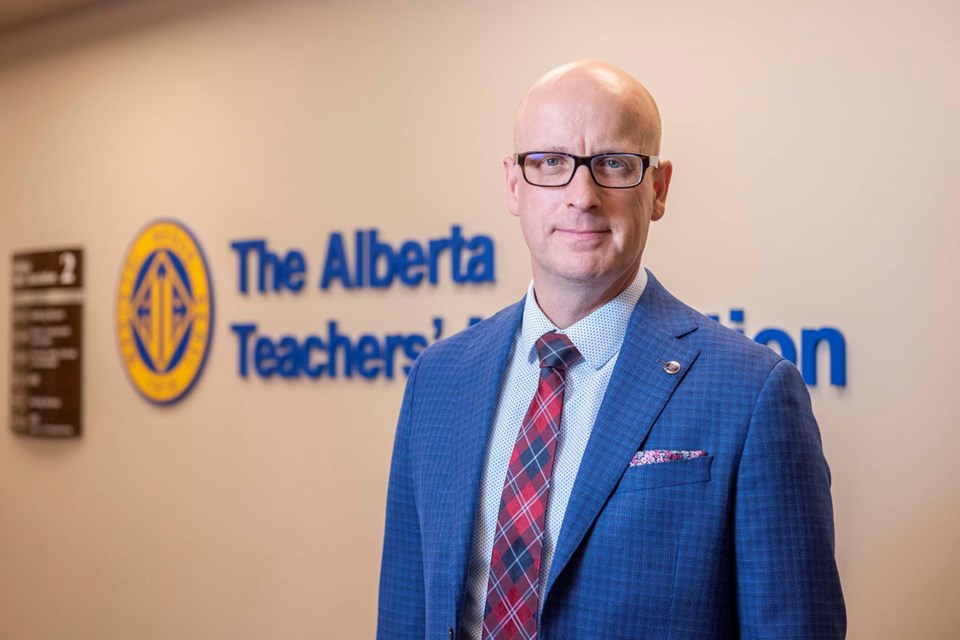Only a few weeks into the academic year, Roseline Carter has a waiting list of Calgary-area schools wanting to tap one of the five facilitators on her team who speak in classrooms on relationships and sexual health.
The demand from schools is so high that the facilitators’ schedules were fully booked back in June.
Students are engaged in the sessions. They want to learn about changes to their bodies and how to deal with conflicts in their relationships. “Everybody just wants to know, ‘Am I normal?’ ‘Where can I go to get support, and what do I do if something doesn’t feel right?’ ” said Ms. Carter, director of programs at the Centre for Sexuality, an organization that provides education and counselling services in the community.
Her team is invited by teachers and principals to run age-appropriate sexual-health sessions that meet Alberta’s curriculum objectives. The sessions run over the course of a week or two.
That work is expected to become more challenging.
Earlier this month, Premier Danielle Smith said in a video message on social media that her government would propose legislation shortly requiring parental notification and opt-in in “each instance” when a teacher addresses gender identity, sexual orientation or human sexuality. The current practice in Alberta and elsewhere in the country is that families can opt out of sex education.
Lessons on sexual health have come under scrutiny from time to time. But advocates worry that the Alberta legislation will limit important lessons on health, consent and relationships reaching young people, leading to negative outcomes. What is even more concerning is it’s part of continuing efforts in some parts of the country to restrict any discussion on gender identity and sexual orientation in schools.
Saskatchewan has halted all third-party educators from presenting on sexual health in classrooms, part of a contentious policy that also forces teachers to inform parents of any children under the age of 16 asking to change their pronouns at schools. New Brunswick, too, has mandated teachers and school staff secure parental consent before using the chosen names and pronouns of transgender and non-binary students younger than 16 in day-to-day interactions, as well as in formal record keeping.
In Alberta, the government plans to propose similar legislation on pronoun changes.
The province’s Education Minister Demetrios Nicolaides said in an e-mailed statement that parents want to be more involved and have a greater say in their children’s education, “especially in respect to sexual education.”
“The change from an opt-out to an opt-in process for sexual education will ensure that parents are aware of the materials and lessons that will be taught to their child during a sexual education class, so they have the flexibility to determine whether or not it is appropriate and fits the needs of their child,” Mr. Nicolaides said.
The changes, however, come at a time when the province’s rates of sexually transmitted infections are troubling.
The most recent data from Alberta Health Services show chlamydia cases increased almost 20 per cent in 2022 compared with a year earlier. There were an increased number of cases of HIV and infectious syphilis as well.
Research shows that comprehensive sexual-health education reduces sexually transmitted infections, teen pregnancies and dating violence, for example. Limiting access to it could have negative implications for the well-being of young people.
Jason Schilling, president of the Alberta Teachers’ Association, said educators have expressed concern about the proposed changes to opt-in for sexual-health lessons.
He said that government officials have already vetted the curriculum so he can’t understand their concerns about the material. Typically, parents who are uncomfortable will have conversations with teachers about what is being taught. In most instances, students participate in sexual-health lessons, Mr. Schilling said.
“Our question to government is, ‘What is the problem that you’re trying to fix?’ My colleagues are worried about the fact that this is going to create a whole lot of red tape that is going to already frustrate people who are very busy in schools,” he said.
Studies show that young people want to receive lessons on sexual health in schools and that teachers, even if they feel ill-equipped, want to provide information to their students, said Jessica Wood, research and project development lead at the Sex Information and Education Council of Canada.
“We don’t see consistent implementation across the country, and now we’re seeing policies that will create additional barriers to implementation,” she said.
The conversations around sexual health in schools in Canada are not as polarizing as they are in the United States, where conservative politicians and parents have silenced classroom discussions around gender identity.
However, Ms. Wood worries that misconceptions about sexual-health education are finding root. It creates a “chilling effect” in the school system, she said, which, in turn, makes it more challenging for educators and professionals to teach lessons on the subject. In sexual-health education, students are learning about topics such as gender-based violence, respectful relationships, reproductive health and how to navigate online spaces.
“We often think of sexual-health education as an investment in the health and well-being of young people,” Ms. Wood said. “But I do think that, especially in some areas, access to sexual-health education in Canada is being challenged and restricted by increased misinformation.”
Ms. Carter in Alberta said her centre will have to work differently to reach young people if the legislation passes. That means running more programs in community-based settings.
“We know that everybody should have access to information about their sexual health, their reproductive rights,” she said. “Not reaching youth in schools just means that we have to work harder.”



